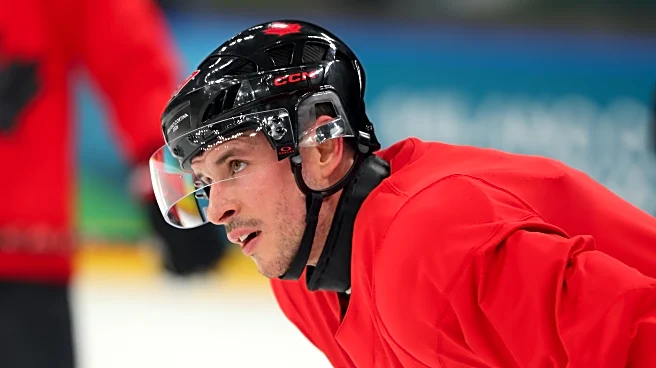Rapid Read • 8 min read
The United Nations is currently hosting a meeting in Geneva to negotiate a global plastics treaty aimed at addressing the issue of excessive plastic production and waste. However, the presence of 234 lobbyists from the oil, petrochemical, and plastics industries has raised concerns about the potential undermining of these efforts. These lobbyists outnumber the combined delegations of all 27 EU member states and exceed the number of scientists and Indigenous peoples present. The Centre for International Environmental Law (Ciel) has highlighted the involvement of lobbyists in national delegations from countries such as Egypt, Kazakhstan, and China. The talks have been extended following stalled negotiations in Busan, South Korea, last year, with tensions arising over production limits and treaty financing.
AD
The presence of industry lobbyists at the UN plastics treaty talks is significant as it may influence the direction and effectiveness of the treaty. With fossil fuel companies being central to plastic production, their involvement raises concerns about the potential for obstruction similar to past climate negotiations. The United States, a major plastic producer, appears to align with industry-friendly positions, which could impact global efforts to reduce plastic production. The outcome of these talks could have far-reaching implications for environmental policy and the global approach to managing plastic waste.
The negotiations are set to continue until August 14, with countries divided into camps supporting ambitious production cuts and those favoring downstream waste management measures. The death of Ghana's environment minister, a key figure in the talks, may affect the dynamics, as Ghana chairs the African Group advocating for strong treaty measures. The outcome of these discussions will determine the future framework for global plastic production and waste management.
The involvement of industry lobbyists highlights the ethical and environmental challenges in global treaty negotiations. The disparity between industry interests and environmental justice advocates underscores the complexity of achieving meaningful change. The talks also reflect broader geopolitical dynamics, with countries like Russia and Saudi Arabia opposing production limits, potentially influencing international relations and environmental policy.
AD
More Stories You Might Enjoy










